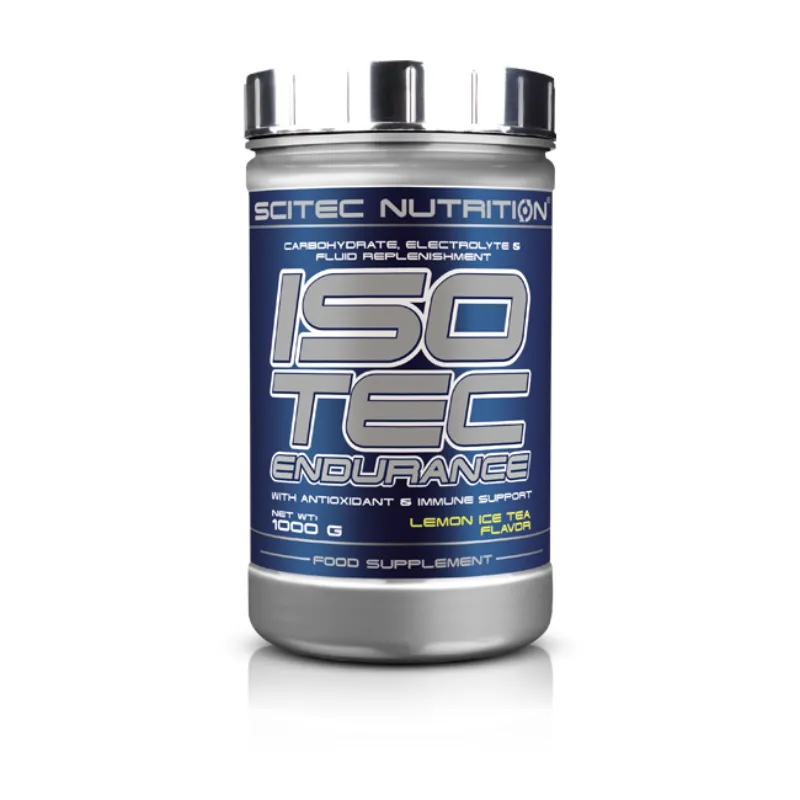What do electrolytes do, is a question many of us have. The answer lies in an often overlooked, yet incredibly important aspect of our health – electrolytes. These small, but mighty particles play a crucial role in everything from keeping us hydrated to ensuring that our muscles and nerves function optimally.
In a world where health advice can often seem complicated and overwhelming, we offer a clear and easily understandable guide to the fascinating world of electrolytes. Through this post, we will explore exactly what electrolytes are, why they are so essential for our bodies, and how we can ensure that we have a healthy balance of these life-sustaining substances.
From delving into the symptoms of electrolyte imbalance to demystifying the myths about hydration, this post will provide you with the knowledge you need to understand your body’s needs and take steps towards a healthier life. So whether you’re an avid sports enthusiast, a health-conscious individual, or just curious to learn more about your body’s inner workings, this post is tailored for you.
Imagine your body as a highly advanced city, full of busy roads, vital messaging systems, and complex factories. In this metaphorical city, electrolytes play the role of traffic police, messengers, and workers, ensuring everything functions smoothly. But what exactly are electrolytes?
Electrolytes are minerals in your body that carry an electrical charge. They are found in your blood, urine, tissues, and other body fluids. Some of the most well-known electrolytes include sodium, potassium, calcium, magnesium, and chloride. These powerful little elements are crucial for many of the body’s most basic and essential functions.
When it comes to muscle function, electrolytes are indispensable. Think of them as conductors for the muscle orchestra. For instance, calcium aids in muscle contraction, while magnesium plays a key role in muscle relaxation. Without the right balance of these electrolytes, our muscles cannot function properly, leading to everything from mild muscle fatigue to serious cramps.
Our nervous system is a super-fast information highway, and electrolytes are the signals ensuring messages reach their destination. Sodium and potassium work together to create nerve impulses, the electrical signals that control everything from heartbeats to moving your fingers. Without this finely-tuned balance of electrolytes, our ability to think, move, and even feel would be severely disrupted.
Last but not least, electrolytes play a key role in hydration. They help regulate the body’s fluid balance and ensure that every cell gets the water supply it needs. When we sweat, we lose not just water but also electrolytes, explaining why dehydration can lead to a range of problems, from headaches and fatigue to serious health risks.
So the next time you drink a glass of water, take a deep breath, or run to catch a bus, remember the invisible heroes – electrolytes – tirelessly working behind the scenes. They ensure your body runs like a well-oiled machine, ready to meet the challenges of the day. By understanding and appreciating the role of electrolytes in our bodies, we can make better choices for our health and well-being.
In a world where we constantly chase balance, both in our personal and professional lives, it’s important not to overlook the balance within our bodies – especially when it comes to electrolytes. These microscopic heroes play a crucial role in our daily health, but how do we ensure that we have the right balance? In this post, we will dive into practical tips for maintaining a healthy electrolyte balance through diet and drink, as well as discuss when electrolyte supplements might be necessary.
The first step towards optimal electrolyte balance is through our diet. Here are some foods that are rich in electrolytes:
By integrating a wide variety of these foods into your daily diet, you can ensure that you get the necessary electrolytes.
When we think of hydration, we often just think of water. But to maintain electrolyte balance, it’s important to consume fluids that also contribute electrolytes. Coconut water, electrolyte-infused drinks, and even plain water with a pinch of salt and a slice of lemon can help maintain this balance.
There are situations where electrolyte supplements might be necessary. This includes:
Intense sport and exercise: During intense physical activity, especially in hot climates, the body loses electrolytes through sweat. Sports drinks or electrolyte tablets can help restore balance.
Illness: Conditions like vomiting or diarrhea can lead to rapid electrolyte loss. In these cases, electrolyte supplements may be necessary to avoid dehydration.
Diet changes and health conditions: Individuals on certain diets (like low-carb or keto) or with certain health conditions might need extra electrolytes.
You can find our electrolyte tablets here.

By understanding the role of electrolytes and how we can maintain a healthy balance through our diet and drink, we can take a big step towards better health and well-being. Remember, the body is a complex machine that requires the right balance of nutrients to function optimally. Electrolytes are a key component in this balance, and by giving them the attention they deserve, we can all enjoy a healthier and more energetic life.
Life is about balance, and this is equally true within the smallest cells of our body. Electrolyte balance plays a crucial role in our overall health, but what happens when this balance is disturbed? This post will explore the potential consequences of electrolyte imbalance, including the symptoms of both deficiency and excess of these critical minerals.
An imbalance in electrolytes can occur for various reasons, including poor diet, certain medical conditions, and extreme physical activity. When the electrolyte balance is disturbed, it can affect many bodily functions, as electrolytes are vital for nerve function, muscle contraction, and hydration, among others.
A deficiency in electrolytes can manifest in several ways, depending on which electrolyte is lacking:
Similarly, an excess of electrolytes can also cause health problems:
Understanding the importance of electrolyte balance is crucial for our health. It’s a complex balancing act that our bodies are constantly working to maintain. By being aware of the symptoms of imbalance and ensuring a nutritionally rich and varied diet, we can help our bodies maintain this vital balance. Remember, health is not just what we see on the surface, but also the countless microscopic processes happening in our bodies every day.
Take a look at our 100% Vegan protein.

When talking about health and well-being, it’s easy to focus on visible aspects like exercise and diet. But what about the less visible, yet crucial elements like electrolytes? This post will take an in-depth look at how electrolytes contribute to our overall health and well-being, supported by expert opinions and research-based information.
Electrolytes such as sodium, potassium, magnesium, and calcium are not just important; they are essential for our bodies to function correctly. They are involved in critical processes such as:
Researchers have long recognized the importance of electrolytes. Studies show that an imbalance in electrolytes can lead to a range of health issues, including heart problems, osteoporosis, and even mental disorders. A balanced level of electrolytes is crucial for optimal health and performance.
To ensure a healthy electrolyte balance, experts recommend a varied diet rich in vegetables, fruits, nuts, and whole grains, which naturally contain these important minerals. Hydration is also essential, especially during physical activity or in hot weather.
Health experts emphasize that while electrolyte supplements may be necessary in certain situations, it is best to obtain these minerals through a natural and balanced diet. They caution against the overuse of electrolyte supplements, as this can lead to imbalance and health risks.
Electrolytes are more than just a part of sports drinks and nutritional supplements; they are fundamental building blocks in our body. By understanding and prioritizing electrolyte balance in our daily lives, we can improve our overall health and well-being. Remember, health is about balance, both inside and out.
We have explored the fascinating world of electrolytes and their indispensable role in our body’s function and overall well-being. From ensuring a healthy electrolyte balance in daily life to understanding the serious consequences of both deficiency and excess, it’s clear that electrolytes are more than just biochemical terms; they are key components in life’s complex symphony.
We’ve seen how electrolytes control everything from nerve impulses and muscle contractions to maintaining hydration and supporting our overall health. By incorporating a diet rich in electrolytes and being attentive to our body’s signals, we can navigate towards a healthier and more energetic life.
This journey through the significance of electrolytes underscores the importance of understanding and appreciating the small, yet powerful elements that keep our bodies running. Remember, a healthy balance of electrolytes is not only essential for physical health but also for mental clarity and emotional well-being.
Take a look at our 100% Whey Protein Professional.

Electrolytes are minerals in the body that carry an electrical charge. They are essential for many bodily functions, including regulating nerve and muscle function, hydration, and the pH balance in the blood.
A balance of electrolytes is crucial for the body’s proper function. Imbalance can lead to a range of health issues, such as muscle cramps, irregular heartbeat, confusion, and in severe cases, even death.
A healthy electrolyte balance is best maintained through a varied diet containing electrolyte-rich foods like fruits, vegetables, nuts, and whole grains. Adequate hydration, especially during physical activity and in hot climates, is also crucial.
Symptoms of electrolyte deficiency can include fatigue, headache, muscle cramps, confusion, and in severe cases, seizures or loss of consciousness. These symptoms depend on which specific electrolyte is lacking.
Yes, it is possible to have excessively high levels of electrolytes, which can be just as harmful as a deficiency. Too much sodium, potassium, or other electrolytes can lead to various health problems, including heart issues and kidney damage.
For most people, electrolyte supplements are not necessary, and a balanced diet is sufficient. However, supplements may be necessary in certain situations, such as intense sports, certain health conditions, or extreme diets.
During physical activity, the body loses electrolytes through sweat. This can impact muscle function and hydration, making it important for athletes to replenish electrolytes, often through sports drinks or electrolyte supplements.
© 2024 Only Approved – Designed by Aveo web&marketing
Socials
Socials